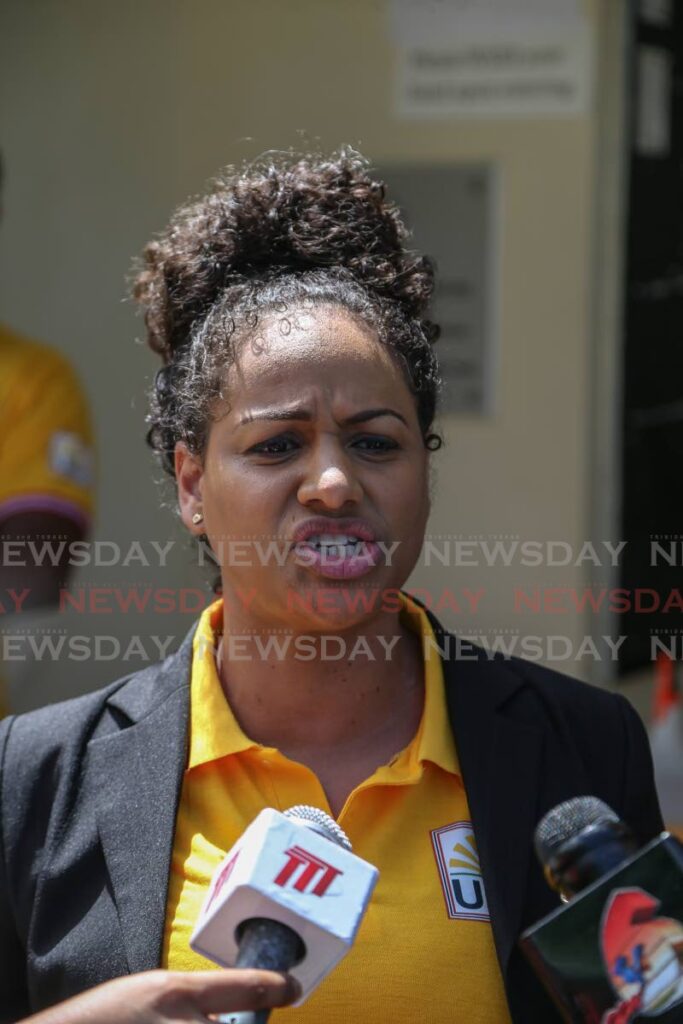Court: Police permission not needed for one-man protests

A High Court judge has ordered UNC’s 2020 general election Diego Martin West candidate Marsha Walker to pay the Attorney General’s costs, and that of the Police Commissioner, in her failed interpretation summons claim which sought to clarify if police permission was needed for a one-man peaceful protest.
Walker’s lawsuit contended she attempted to engage in a one-man silent and peaceful protest outside the Parliament between July and November 2021.
Her claim sought to determine if section 109 of the Summary Offences Act required a protester to notify the commissioner 48 hours before the proposed date of the protest, and if sections 112-115, for a one-man silent protest, required permission.
Her lawsuit asked for a declaration that there was no legal requirement to notify or apply for permission from the commissioner for silent one-man protests.
However, in a decision delivered earlier in January, Justice Joan Charles said there was nothing to interpret in the sections, and the interpretation claim was inappropriate.
“The plain and ordinary meaning of the words makes it clear that a ‘one-man’ protest does not engage the permission requirements of either section 109 or sections 112-115 of the act.
“There is nothing to interpret. In any event, no constitutional issues require clarification, as the constitutionality of these sections and of the notification/permission requirements in respect of public marches were already decided by the courts of Trinidad and Tobago and by the Judicial Committee of the Privy Council.
“The issues raised by the claimant do not meet the threshold requirements of a genuine disputable issue of general public importance,” Charles said as she dismissed the claim.
Walker contended she attempted to put placards on the rails of Woodford Square during her protest but was told by an officer that she had to stop.
The judgement said her protest was to confirm if her ability to publicly protest was completely removed during a state of emergency since she was told by former police commissioner Gary Griffith there was a difference between a one-man protest and public assemblies, the latter being in breach of the public health regulations.
Her second protest was also met with resistance from the police for not receiving permission.
After her third protest, Walker sought clarification from the police and was told by the head of legal services of the police service that the approval of the commissioner was required for a one-man peaceful protest.
Charles in her ruling said the inconsistency and unequal application of the law had created a sense of arbitrariness, confusion and uncertainty on if permission was required for protests or not since in the past, there have been public protests, including one-man silent protests, without permission of the commissioner and, in some cases, held under the watchful eyes of the police.
“If such permission is required, the conduct of the police raises even more fundamental issues regarding the right to equality of treatment from a public authority in the exercise of its functions under section 4(d) of the Constitution.
“It is plainly discriminatory and fundamentally unfair for the police to demand that the claimant obtain prior permission for her one-man silent protest and disrupt her other protests while threatening to arrest and charge her while others are allowed to protest without any permission with impunity.
“There is no requirement that an individual is required to notify and/or apply for the consent of the Commissioner of Police to conduct a one-man silent protest.
“The Trinidad and Tobago police service, by erroneously interpreting the relevant provisions of the Summary Offences Act to be a blanket restriction on protesting activities, acted illegally in interrupting the claimant’s protesting activities on the basis that notification nor the Commissioner of Police’s consent was not provided for same.”
It was because Walker’s claim on the alleged ambiguity of the law on public protests did not require interpretation, her lawsuit was dismissed.
Walker was represented by Anand Ramlogan, SC, Renuka Rambhajan, Jared Jagroo, Natasha Bisram and Vishaal Siewsaran while Rishi Dass, Karissa Singh and Ryan Grant represented the commissioner and Fyard Hosein,SC, Amirah Rahaman, Avaria Niles and Jekilyah Gibson represented the Attorney General.


Comments
"Court: Police permission not needed for one-man protests"